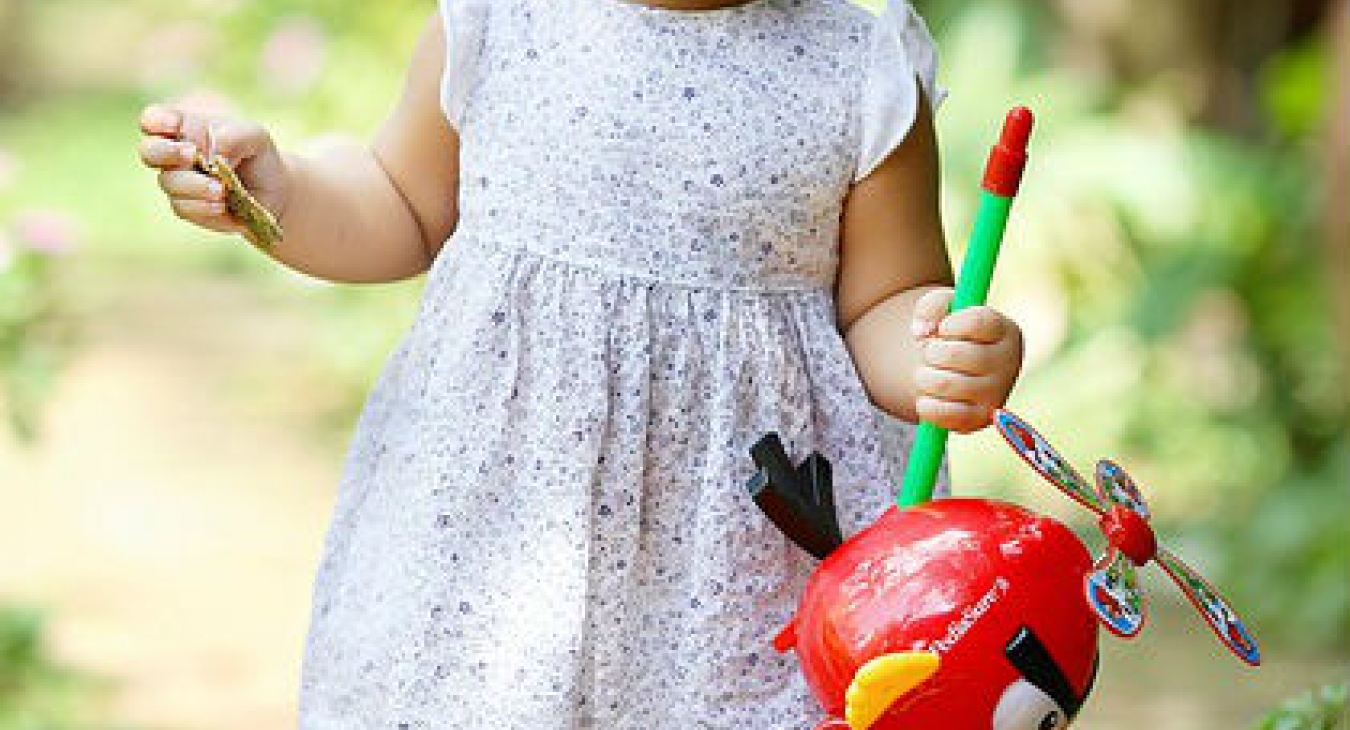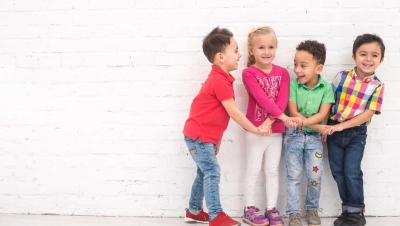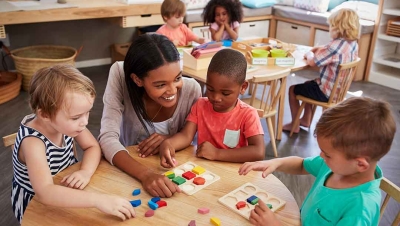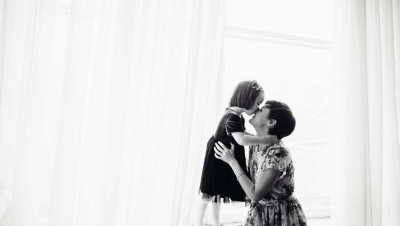Girl playing with a helicopter
Helicopter parenting: That’s something other people do, right? No one wakes up in the morning and says, “Today, I’m going to be a parenting stereotype!” Quite the opposite: parents open their too-often under-rested eyes in the morning and jump right into the role of ultimate caretaker—superman or superwoman, ready to save their child’s day and make the world a safer place for her or him to live, play and learn.
This “helicopter parent” catchphrase comes from the idea of an ever-watchful parent who is there at every turn trying to protect and guide their child. That sounds pretty good, doesn’t it? It sounds like someone who is dedicated and loving and supportive to the infinite power! Take a moment to acknowledge all that is wonderful about that effort and intention and see if that feels like you. Now, imagine a way forward that brings your parenting into balance, helps you feel more at peace and helps your child grow and thrive more than ever before. Here’s how it works…
Letting Go of Fear
In looking more deeply at so-called helicopter parenting—beyond the doubtless truth that it’s about loving, guiding and protecting kids—there is an element of fear present that is the driving force behind this above and beyond “super” parenting style. In other words, in loving, guiding and protecting, there is an emphasis on the protecting.
The latest research shows that overprotecting children can actually lead them to become adults who are unsure of themselves and feel unprepared to be in the world. So, what is the proper balance between infinite love and just enough guidance and protection? And how can parents find that place for themselves when battling feelings of fear about how safe the world is and wanting to protect children from harm?
Each parent has to find the balance point that works for them and their family, and that includes consciously stepping back to allow kids to make their own mistakes and face their own consequences. To make space for this without drowning in fear and anxiety, though, parents can give themselves the gift of mindfulness.
A Mindful Place to Land
Mindfulness in its most simple definition is a map for understanding the human experience. The core practice is resting in presence, allowing yourself to simply know and observe what is. It is a compassionate and non-judgmental awareness of your inner and outer moment-to-moment experience.
Being mindful doesn’t mean you are calm all the time. You can just as easily be aware of your anxiety, anger or fear as you can be all Zen and relaxed. It’s great when it accomplishes the latter, but it’s also okay when mindfulness simply provides a step back from the intensity of otherwise unpleasant emotional states.
When it comes to mindfulness and parenting, regular practice can help give you just enough of a pause from your normal reaction that you are able to choose your response instead. For example, it’s always a good idea to stop your son or daughter from running into the road when a car is coming, but it might be worth thinking twice before stopping them from making other non-life-threatening decisions that could result in a meaningful learning experience. Here are a few mindfulness practices to try while you work to find your own parenting balance.
- Start with Your Breath: Whenever you feel fear or anxiety, pause for a few moments and focus on your breath. Feel your breath coming in through your nose and going out through your mouth. To be able to access the breath as a tool during these moments more easily, it’s important to practice intentional breathing in non-stressful moments, too. Leave yourself a sticky note somewhere that you’ll see it every day and pause to breathe. Or you could set a timer on your phone to prompt you a couple times each day to just breathe and focus on your breath. It doesn’t have to be long, but practice and repetition go a long way. The more you practice, the easier it will be to take an intentional breath or three when you need it most during anxious or upset moments.
- Know What Sets You Off: What are your biggest triggers? Maybe it’s watching the news or listening to a certain friend or family member rant about the state of the world. It could be traffic or toys on the floor. Everyone has things that press their buttons. Identify what ticks you off the most and write these things down in a journal or notebook. As you do this, it becomes a mindfulness practice when you do so without judging yourself for whatever—or whomever—has you feeling most upset. You are simply observing what upsets you without either justifying it or allowing yourself to feel guilty for it. It simply is what it is and you are acknowledging each thing with mindfulness.
- Relearning to Listen: Our brains are fine-tuned machines operating in a world that often demands multitasking, so it’s no wonder that we are usually planning what to say next while people are speaking. As you work to establish a new balance in your parenting, experiment with listening mindfully to your children. Notice if you start thinking of how to respond while they are talking, then let that go and refocus on listening. What more can you discover about your child when you focus on really hearing what he or she is saying?
Parenting is a journey in which parents and kids grow and learn together. It is the parents’ role to set limits and hold kids to appropriate expectations, to be sure. However, this can only be done with authenticity if parents are also focusing on their own growth. Mindfulness opens a door to finding that elusive sense of balance and peace all people crave, and it gives parents a place to land. Through mindfulness, you can move away from fear and toward empowering your children to come up with their own answers and gain the skills to find solutions in their own lives.




